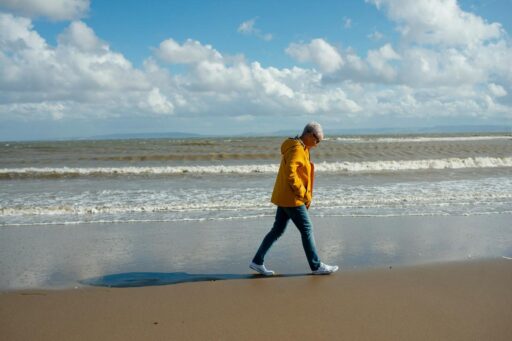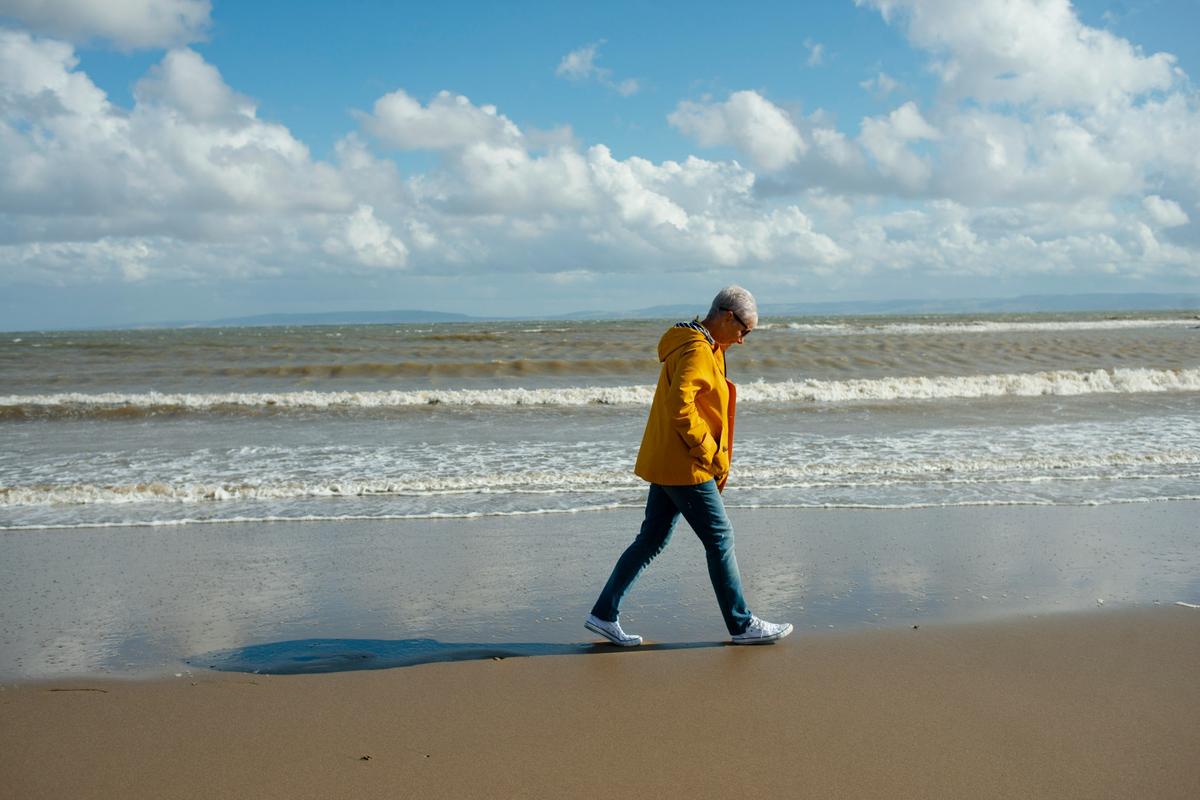How to Age Gracefully Without the Gimmicks
Healthy’s Summary
Let’s be real: “anti-aging” is kind of a weird phrase. You’re not trying to stop time—you’re just trying to feel good in your body as it evolves. Aging gracefully isn’t about chasing youth or obsessing over wrinkle creams. It’s about supporting your health so you can stay active, sharp, and joyful—whether you’re 45 or 85.
You have more control than you think. Daily habits like how you move, what you eat, how you sleep, and who you spend time with all play a part. And while there’s no one-size-fits-all strategy for longevity, there are some clear, science-backed ways to stack the odds in your favor.
Let’s Talk Longevity: Not Just Years, But Quality Years
We’re not just aiming to live longer—we’re aiming to live better. Learning how to age gracefully isn’t about chasing perfection; it’s about stacking the odds in your favor so you can stay sharp, mobile, and truly present in your later years. And while we can’t control everything, a lot of what determines how we age is totally within our control.
In fact, a study from Harvard T.H. Chan School of Public Health found that five low-risk lifestyle habits—like not smoking, staying physically active, moderate alcohol use, maintaining a healthy weight, and eating well—can add over a decade to your life expectancy.
But longevity isn’t all green smoothies and 10,000 steps. It’s also about your mental resilience, your connections with others, and whether you find joy and purpose in everyday life.
What Does “Aging Gracefully” Actually Mean?
Here’s where things get personal. For some, aging gracefully means being able to hike into their 70s and 80s. For others, it’s about maintaining independence, staying mentally sharp, or just waking up each day with something to look forward to.
There are a few things that seem to show up again and again in the lives of people who age well. Daily movement plays a big part, and it doesn’t need to be extreme; just regular walking, stretching, or whatever kind of motion you enjoy. A mostly plant-forward diet, like the Mediterranean style with lots of veggies, olive oil, fish, and legumes, shows up consistently in places where people live longer, healthier lives.
Sleep is another big one. Not the kind of sleep where you crash for four hours and call it good, but actual restful sleep that your body uses to repair and restore. Mental stimulation, such as reading, learning new skills, exploring new hobbies, doing puzzles or playing music, can help a lot in the long run.
Maybe one of the most underrated pieces of aging gracefully is connection. Humans are social creatures, and study after study shows that loneliness can have real, physical health impacts. Staying plugged in to your community, your friends, even just chatting with neighbors, can make a real difference. Purpose matters, too. Having something to care about—whether it’s grandkids, a garden, or a weekly volunteering gig—can be a powerful longevity tool. These aren’t just nice-to-haves—they’re part of the foundation for how to age gracefully, inside and out.
If you’re looking for even more practical tips to support your health through each decade, check out our guide on How to Age Well: Tips for Staying Healthy Through the Years. It’s a great companion read with actionable ideas you can start today.
Quick Myth Check: Are Supplements and Creams the Secret?
The short answer? Not really. While some supplements like vitamin D or B12 might be helpful—especially as you age or if you have deficiencies—there’s no miracle pill that replaces movement, food, sleep, and social support.
There’s a lot of buzz around collagen powders, NAD+ boosters, and other anti-aging supplements, but most of these aren’t strongly backed by long-term data. The truth is, aging well isn’t flashy. It’s mostly consistent habits that add up over time. And if you’re wondering whether a particular supplement makes sense for you, a quick chat with your doctor is always a good move.
Same goes for skincare. A little moisturizer and SPF go a long way. Beyond that, graceful aging has more to do with what’s happening inside your body than what’s on your face.
Thinking about trying supplements but not sure where to start? Are Dietary Supplements Safe? How to Experiment Responsibly breaks it down in plain terms—what works, what doesn’t, and how to make smart, safe choices.
Ask Healthy
Is It Ever Too Late to Start?
Absolutely not. And this isn’t just hopeful thinking—science backs it up. Even if you’ve been sedentary for years, or haven’t paid much attention to your health until now, you can still see improvements. It’s never too late to start learning how to age gracefully—one step, stretch, or salad at a time.
Take walking, for example. Just 30 minutes a day can lower your risk of heart disease and stroke significantly. And learning something new—whether it’s painting, dancing, or even using a new app—can boost your brain’s resilience and reduce dementia risk, according to the CDC. Small changes, done regularly, are incredibly powerful.
The Emotional Side of Aging: It’s Real, Too
This part often gets overlooked, but it’s deeply important. Aging can bring up feelings of grief, fear, or even loneliness. It’s not all golden years and wisdom. But it can also be liberating.
Learning to accept your changing body, letting go of perfectionism, creating space for joy—these things can be just as transformative as a gym routine. Therapy, journaling, meditation, spending time in nature, or just talking with someone who gets it—these are all valid, even essential, parts of aging well.
Mental health is health. And it deserves just as much care and attention.
The Takeaway
Want to know how to age gracefully? It’s not about fighting time—It’s about flowing with it, supporting your body and mind in ways that help you live fully, with ease and meaning. The magic isn’t in biohacking or 25-step skincare routines. It’s in showing up for yourself—one walk, one conversation, one night of good sleep at a time.
Start where you are. And be kind to the future you.
Want to dig deeper?
Healthy Independence: Staying in Control as You Age
“Healthy Independence” is here to help you stay in control of your daily life and live on your own terms. This program offers practical tips, tools, and strategies for maintaining self-sufficiency, from managing common challenges like joint pain, fatigue, or forgetfulness to improving safety and ease at home. Discover solutions to support your confidence and well-being, including advice on mobility, daily routines, and emotional resilience.
Enroll in one of Healthy’s Programs to log, track and learn more about your Health, one conversation at a time.
Learn More




